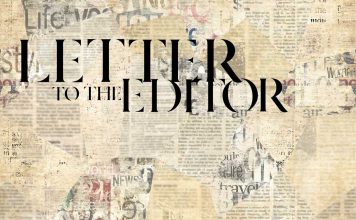As a little boy growing up in Hollister, I remember my dad
taking my sister and me to the public library on Fifth Street. He’d
let us loose like vandals raiding Rome, and we’d pillage the
shelves for literary treasures.
As a little boy growing up in Hollister, I remember my dad taking my sister and me to the public library on Fifth Street. He’d let us loose like vandals raiding Rome, and we’d pillage the shelves for literary treasures.
I’d come home with a dozen children’s books and promptly climb up to my tree-house fort and devour the adventures stored away between the bindings.
Dr. Seuss was a favorite, of course. In my humble scholarly opinion, his classic “One Fish, Two Fish, Red Fish, Blue Fish” is on the literary echelons of Dostoyevsky’s “The Brother Karamazov.” And “Go Dog, Go!” just has to be the greatest to me ever conceived analyzing the combination of canines and cars.
But I particularly loved the books that chronicled the antics of a little money named “Curious George” who managed to get himself into a ton of trouble. I happened to have the same knack for getting into mischief in those days.
When we grow up and leave the world of childhood for the so-called “real world” of adulthood, many of us take for granted the simple pleasures of libraries. We also tend to overlook the impact that libraries have had on our lives – not to mention the history of civilization.
The most famous library of the ancient world was the Library of Alexandria, a city on Egypt’s Mediterranean shores. The library must have been a marvel for its age when it was built around 300 years before the birth of Christ.
It was the first time human beings had seriously collected the knowledge of the world and systematically arranged it for convenient reference.
The Library of Alexandria changed the world. Whenever a vessel sailed into port, the Alexandrian librarians would inquire of those onboard if they just happened to have any interesting literary works. “Got any new plays from Euripides?” they might ask.
“Not this voyage. A corker of a tale by Sophocles, though. It’s called ‘Oedipus Rex’ and it’s about the perils of do-it-yourself eye surgery.”
“How ’bout the latest John Grisham thriller?” the librarians would then ask, always on mind for a best-seller for their patrons.
The librarians would borrow the papyrus scroll from the seafarer and carefully hand copy the manuscript and place it in their great library.
And of course, they would return the original scroll to the owner – paying the twenty cents a day overdue fine if they had kept it past the three week limit.
Modern historians believe Alexadria’s great library housed more than half a million works. They were kept in ten research halls – each one devoted to a separate subject.
Scientists, philosophers and scholars came to the library from all over the Mediterranean world to do research on medicine, astronomy, geography, philosophy, biology, physics, mathematics and engineering.
Viewing the knowledge of others helped inspire them to create new ideas and technological innovations of their own. The library’s wealth of information pushed great minds to expand the boundaries of humanity’s knowledge.
The Library of Alexandria shelved great books by revolutionary thinkers.
One by the astronomer Aristarchus of Samos reasoned that the Earth was not the center of the universe but simply another planet, and it orbited the sun. Aristarchus also had the astounding idea that stars weren’t just points of light in the sky but really suns themselves – only very, very far away so they looked very, very small.
The ancient library in Alexandria also kept the Zoroastrian priest Berossus’s three-volume history of the world. The first volume described the creation of the universe at about 432,000 years ago – 100 times longer than the Old Testament’s Genesis version.
Unfortunately, the Library of Alexandria was lost to the ages in 391 A.D. Christians were gaining power in the Roman empire, and they had an unstoppable zeal to wipe out all things pagan. For them, the library contained books with ideas Christians leaders considered heretical. In other words, it was a big bad threat to their power.
“Bring out the Kingsford lighter fluid, we’re gonna have ourselves a barbeque,” the Christians proclaims. And up in smoke forever went the works of Berossus, Aristarchus, and countless other ancient writers and thinkers.
The event marked the start of the Dark Ages.
In America, libraries have became an essential part of our democracy – thanks, in part, to Benjamin Franklin who started the first free lending library. At the end of the nineteenth century, Alexander Carnegie, the savvy Scot industrialist who rose from poverty to became the world’s richest man, gave away more than $56 million to provide towns across the world with buildings to house their public libraries. Hollister’s present city hall and Gilroy’s history museum were originally built as Carnegie public libraries.
Today in our Information Age society, libraries are more important than ever. They provide a wealth of material besides books and periodicals.
You can go into a library and check out – for free – videos, DVDs, books on tape, music compact disks. They provide a door to constant and never-ending improvement for anyone and everyone who chooses to take advantage of their collections.
Tomorrow’s great thinkers and innovators are strolling the aisles of public libraries today. That’s why it’s important Measure B – Santa Clara County’s library fund measure – passes on election day on March 2. Public libraries are one of those sure bets of society. Where else can you get the biggest book bang for your buck?
Martin Cheek is the author of ‘The Silicon Valley Handbook.’











